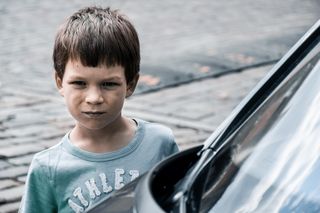
By Jill Leibowitz, PsyD.
When we involve ourselves in our children’s activities intending to be encouraging, supportive, and empowering, we may be interfering with key aspects of their development. When we join them in political protest, we may disrupt their need to experience the risk that goes along with it and that aids in the development of a sense of courage, pride, and agency.
They Took Away His Protest
During the week of the national school walkout to protest gun violence, all of my adolescent patients described their participation in the protest and the ways in which their various public and private NYC schools supported them.
I was impressed to hear about their schools’ support and involvement until I saw my last appointment of the week. As 14-year-old Jonah told me about his participation in his school’s walkout, this soft-spoken adolescent’s voice became increasingly louder. He complained that the faculty at his school participated in it. Worse, they organized it! “It was so overly organized,” he reported with indignation. “It was supposed to be a student protest. But by making it a school activity, they took away our protest!”
Protest is an Important Vehicle for Growth
Protest is part of a lengthy process of becoming a separate, independent individual. While the process becomes active during the first year of life, it becomes most evident during the “terrible twos”— that time in development when toddlers begin to assert their autonomy, shouting “NO!” and melting down at seemingly slight provocations.
Parents’ mistakes are unavoidable, and they can become the useful basis for our children’s protest. Even if we aim to be perfect parents, inevitably, we will fail. Minor failures are not just unavoidable, they are a necessary and intricate part of our children’s development that propel them towards a sense of agency.
The “Good-Enough Mother”
The term Good-Enough Mother highlights the importance of disappointment and protest as critical developmental experiences for babies. Minor “failures”—for example, not getting milk to the baby the instant he feels hunger—help the baby to gradually understand that the caregiver is someone to whom he must communicate need. Babies cry to let their mother/caregiver know they are hungry. When mommy responds to the crying by feeding him, he proudly discovers his sense of agency; his power to have an impact on his world.
Kids Need to Rebel in Order to Separate
As children become more self sufficient, their form of protest must evolve and become more complex. Gone are the days when they cried to be fed. Now they yell at us when we tell them to take out the garbage. They wear clothes they know we don’t approve of. They find creative ways to defy us and, within certain limits, it is through this type of rebellion that children experience healthy separateness.
When children rebel against us, they gain a sense of:
- Courage as they risk our anger, our disapproval, and our punishments;
- Mastery/Agency as they get their needs and desires met, despite our restrictions;
- Pride in what they’ve achieved;
- Separateness in the very act of rebellion.
It’s Hard to Let Go of Our Children
Separating can be a scary process, for both child and parent. There’s a clear understanding that children are dependent on their parents, but what’s less acknowledged is that parents can become reliant on their children. For better or worse, we see ourselves in our children. We identify with them. We get a vicarious thrill when we experience their youthfulness, agency, and hope (for example, when we proudly share their accomplishments on social media).
We need to be mindful that:
- Our impending sense of loss and loneliness as our children venture into the world without us may make us want to hold on or take over;
- Our tendency to be so supportive can destroy the sense of risk needed for our children to develop an authentic sense of courage and pride;
- Our past complacency regarding societal change may lead to guilt and a desire to co-opt our children’s protest;
- Our envy regarding our children’s energy and youthful hopefulness may cause us to inadvertently spoil it for them.
If we’re too good, too supportive, too helpful, we end up squashing our children’s development. As our children’s protest evolves and becomes more pointed, it is more likely to destabilize us. “Because I said so!” can lead to eye rolls and verbal protests that threaten our own sense of power or worse, humiliate us. We have to tolerate their rebellion in order to show them their strength (and paradoxically, ours).
As adults, we need to be careful about the subtle ways that we may inadvertently undermine our children’s protest. Instead of stepping in and taking over, we need to make sure we step back sometimes. We need to allow our children their protest.
Jill Leibowitz, Psy.D., is a psychologist in private practice in NYC. She is a graduate of the Child and Adolescent Psychotherapy Training Program at the William Alanson White Institute, where she now teaches and supervises. She is also on the faculty of the Harlem Family Institute, and is an advanced candidate at the Anni Bergman Parent-Infant Training Program. Jill is passionate about the importance of play and emotional literacy in child development.




